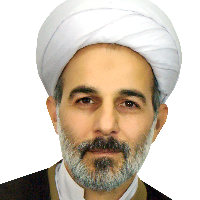Freedom in Kant's Thought
The concept of freedom in Kant's view is a general concept that comprises three critiques and many of his treatises and writings. He introduced freedom as the foundation of morality and considers it the fundamental characteristic of the subject. In his view, freedom exists with two negative and positive meanings. From among these two meanings, Kant has chosen the second meaning and made it the basis of his thought. This type of freedom cannot be realized in an individual way and man finds the opportunity for appearance in light of socialization. Also, Kant has referred the realization of freedom to history and considers it a historical destiny. The present article has been written with the aim of describing the concept of freedom in Kant's thought and pointing out some of its shortcomings with an analytical-critical method. By analyzing the concept of freedom in Kant's thought, the authors have come to the conclusion that there are some important issues in the analysis of the concept of freedom that Kant did not pay attention to in his analysis of the concept of freedom; including various meanings of freedom, historical, cultural and linguistic aspects of rationality, and the commitment of the concept of freedom to satisfaction and happiness.
-
شیرینی ارتباط با خدا از طریق مدیریت فکر و اندیشه
*
نشریه ره توشه، زمستان 1403 -
The Reasons and Methods for the Scientific Authority of the Holy Quran:A Preliminary Review of the Theory of Ontological Proportionality in the Philosophy of Ethics
Mohammadali Mobini *
Journal of Quranic Science Studies, -
Medina Farabi's political security and its emphasis on the logic of virtue
Jigheh *, Abolfazl Kavandi Kateb, Hossein Mahjobi Manesh
Journal of The History of Islamic Philosophy, -
Fichte's effect of Machiavelli's effective reality in politics and overcoming it in the moral sphere
Jige *
Qarbshenasi-ye Bonyadi, -
The Capacity of Transcendent Wisdom on the Concept of "Body" in Analytical Comparisons with Merleau-Ponty's Thought
*, Ali Aghaeepour, Mohammadali Mobini
Journal of Contemporary Philosophy,





